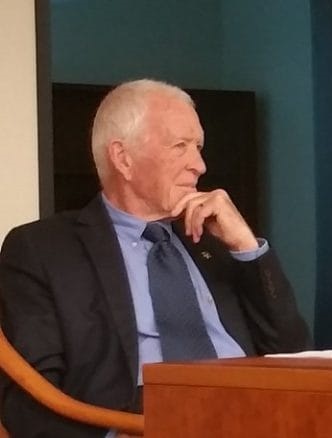
Table of Contents
The psychology of money by morgan housel : Introduction
We would now like to refer to the insights presented by Howard Marks in his fabulous bestseller, ‘The Psychology of Money.’ We will categorize the same in the way these teachings have been given within the chapters of the book. Without much ado, let’s jump straight into pearls of wisdom that you may want to apply in your life.
The Psychology of Money by Morgan Housel explains that money management is not all about the numbers but about how we think and feel.
One of the key points in the book is that the process of creating wealth does not stem directly from any single big success but from small, steady decisions in which one is patient and consistent. Good money managers avoid risky behavior, are in control of their emotions, and think long-term. Housel also notes that everybody’s money attitudes are molded by one’s life experiences.
A person may be cautious due to lack of money, growing up in a family with limited financial resources, but could also be intrepid because of being brought up in an affluent family. The book also points out that success in money is not a question of who is the smartest or who has the most talent, but who is just patient, learns from mistakes, and makes minor improvements. It discourages the reader from letting his decisions be driven by fear and greed but, rather, advises one to take decisions carefully with an appreciation of the risks at hand.
Overall, The Psychology of Money makes it evident that how people think about money is as important as the amount they have. The book ‘the psychology of money’ encourages such readers to make conscious decisions in their finances, realizing that wealth is not a momentary occurrence but a slow, sure process.
No One’s Crazy
The psychology of money : Chapter 1

The Psychology of Money sayes The way we look at money is shaped by different life experiences. For example, persons born in 1970 saw stock markets grow a lot; they are more optimistic concerning investments compared to persons born in 1950 who have become very careful due to the tough times they have gone through. Also, inflation appeared in different ways among different generations.
An economic situation can be drastically different than another. For example, while in 2009 the U.S. unemployment rate reached a high of 10 percent, it had been even higher for certain groups, such as African American teens. During the Second World War, whereas Germany’s economy suffered, that of the United States thrived, setting up very different attitudes towards financial security.
Money decisions are often a reflection of personal stories, not logic. For instance, some people buy lottery tickets as a way of dreaming big, despite slim odds. Modern financial tools, such as student loans and retirement plans, are new in town. Therefore, people’s choices often are dependant on emotions and context, even though they may seem illogical.
Luck and Risk
The psychology of money : Chapter 2
Economist Bhashkar Mazumder found that brothers’ incomes are more alike than their height or weight; it shows how much parents’ money and education figure in their children’s future.
Whereas others blame failure on laziness or unfortunate choices, in most instances it is about luck and risk. For instance, if a stock does not grow, was that a bad decision or simply bad luck? One will never know.
While one attributes other’s failures to choices, he attributes his own misfortunes to luck. This is unfair because luck happens upon everyone. Even the great business tycoons like Vanderbilt and Rockefeller needed risk and luck to reach their status. Both success and failure are complicated. Instead of imitating billionaires, let’s concentrate on what works for most people and be kinder to ourselves and others when our plans don’t work out.

Never Enough
The psychology of money : Chapter 3

The two tales pertain to Rajat Gupta and Bernie Madoff: two powerful individuals who, in their pursuit to own everything, lost everything. Gupta was a role model who had risen from grass to grace, although he ended up behind bars for engaging in insider trading. Madoff, too, was quite successful until it was revealed just how big his fraud had been.
Both men already had more than most people ever dream of having; still, they each had to go and risk everything to get more. The lesson? Learn to know when it’s “enough.” Pursuing endless riches may make one err and live to regret. True happiness is to appreciate what one has and is able to protect: freedom, family, and reputation.
Confounding Compounding
The psychology of money : Chapter 4
Big things often start small and grow over time. Ice ages began with a little snow that didn’t melt in summer, and over years, it grew into giant ice sheets. The same idea works with money! Warren Buffett became super rich not just because he’s a great investor, but because he started investing when he was young and kept going for decades.
It’s called “compounding,” where small gains grow into something huge if you’re patient. The secret to success isn’t always being the best right away, but starting early, staying consistent, and letting time help you reach big goals.

Getting Wealthy vs Staying Wealthy
The psychology of money : Chapter 5

Rick Guerin used to be in a famous investing trio with Warren Buffett and Charlie Munger. Rick, as equal in skill, hurried too much to get rich which became a cause of his decline. He used borrowed money during the market crash of 1973-1974 and had to sell his Berkshire Hathaway shares in response to the low price of that time, whereas Warren and Charlie maintained their slow and steady strategy.
This story teaches three lessons: the first is to survive rather than gain quickly; the second is being well-prepared for anything and everything in life, and finally, one needs to be optimistic about the future but at the same time cautious about risks. Real success is to culminate through patience and slow growth after facing bad times.
Tails, You Win
The psychology of money : Chapter 6
To become a public company, a business has to be successful, but in reality, most companies aren’t forever. For instance, Carolco was a big film company in the 80s and 90s; however, it went bankrupt in the 90s after some failed projects. Examples of large, successful companies include Amazon and Apple, but even these companies owe much of their success to a few big ideas, such as Amazon’s Prime and Apple’s iPhone. Most of their other ideas didn’t work.
Small, brilliant moments of success usually count more than the ordinarily placid ones in investing. Okay, one fails at times; the idea is to concentrate on the moments of success that far outweigh the losses.

Freedom
The psychology of money : Chapter 7

More than anything, people prefer to have control over their lives; this is the most vital factor for their happiness-they would rather this than be rich or have a high position. It’s not about a big house, then, or having a fancy job; it’s about doing what one wants to do, when one wants to do it.
Money helps a person gain more time-control by enabling him to take days off when he is unwell or not worrying about a job after losing it. Most people toil for money as they think it is this element that will bring happiness; however, what actually counts is the time one can spend doing things loved with persons cared for with freedom to appreciate life.
Man in the Car Paradox
The psychology of money : Chapter 8
I was a valet and drove cars like Ferraris and Lamborghinis. I always thought that if I had such a car, everyone would admire me. Now I understand that it’s not the person they admire-it is the car they wish they had. Sometimes, in life, we envy other people because they have what we want.
Most of the time, we wish to have expensive things in order to show other people that we are somebody; but other people may not even notice or care about what we have-they just care about the material. Fancy things don’t command respect. It is being nice and humble that really earns respect and makes others look up to you, and not just owning expensive items.

Wealth is what you dont see
The psychology of money : Chapter 9

Wealth is usually hidden; people confuse being rich with being wealthy. You see somebody who owns a fancy car, and the first thought that crosses your mind might be that the person is rich; on the contrary, they may be in debt. True wealth comes by saving money, not spending it uselessly.
Most people concentrate on purchasing expensive items as a way of showing off, yet real wealth is in the abundance of money one has saved up for future investments. It’s like exercising and not rewarding oneself with food right after. While wealth offers choices, flexibility, and security, too much spending will easily reduce one to living from paycheck to paycheck.
Save Money
The psychology of money : Chapter 10
The U.S. has become more energy efficient: it does more work with less energy. This helps in improving the use of energy though it is uncertain if more energy can be found. By being more efficient, we can manage the amount of energy and money we spend.
Just like saving money, it’s important to spend less and save more regardless of income. Flexibility allows you to change jobs or retire early without it fazing you, among other things. In today’s world, flexible is key, rather than being the smartest or most talented person. Flexibility is a strong advantage.

Reasonable > Rational
The psychology of money : Chapter 11

When it comes to money matters, the rational thing is to be reasonable, not perfectly logical. Too much rationality may result in strategies that sound good on paper but are hard to stick with in real life. For instance, one doctor once treated syphilis with malaria since he believed that fevers helped fight infections, although it was risky and unreasonable even though it worked sometimes.
This is quite similar to finance, where people will make decisions that feel right for them, just like sticking with investments one cares about. It’s not about being perfect instead making realistic choices, ones you can stick with over time.
Surprise!
The psychology of money : Chapter 12
As Nassim Taleb once said, “The future is seriously resistant to predictions, because the causes that create ‘Black Swan events’ don’t give a warning sign.” And too often we are ill-prepared for them because we based our knowledge on the experiences of the past. A good example is the nuclear disaster at Fukushima.
The engineers didn’t envision anything worse than what previously happened, and catastrophic consequences resulted. History often isn’t much of a guide, particularly if the concept is new, as with 401(k)s or venture capital.
Even the greatest of investors, such as Benjamin Graham, revised their advice as conditions evolved. The world keeps changing, and it is our responsibility to learn from the unanticipated turns of events, rather than from expectations about how the future would go hand in glove with the past.
If history repeats itself, then perhaps its major lesson is about staying flexible and adapting with the times.

Room For Error
The psychology of money : Chapter 13

Sometimes, while making plans, people forget to leave room for mistakes-particularly when planning for money. For instance, in planning home renovations, people imagine that everything will fall right into place, and they usually do go over budget.
Most expert predictions about the future may involve very specific numbers, but seldom do errors or surprises get factored into those predictions. It is of essence that you leave room for error so that you can handle those problems without getting hurt.
Planning for such unexpected occurrences, be it an unexpected expense or a market drop, actually helps in staying safe-when things don’t go according to plan. Saving for the unknown future is smart, because no one can predict everything.
You’ll Change
The psychology of money : Chapter 14
A friend of mine did all it took to be a doctor, which, at first, seemed impossible; he had many challenges later on but achieved his dream.
Then, when he finally became a doctor, he realized that it wasn’t as great as he thought. That shows how we sometimes overestimate how happy we’ll be with our goals.
Growth brings changes in wants and needs; what seemed perfect at one time may not be wanted later on. In major decisions, there needs to be a balance that can be made, and it’s okay to change one’s mind.

Nothing’s Free
The psychology of money : Chapter 15

Every job appears easy, if you are not doing it, because one does not see all the hard parts. Success can be compared to making profits from investments, being full of challenges at every step, including the regular ups and downs of the markets.
For instance, investing in stocks fetches a huge reward, but at the same time, it involves living with fear and insecurity. It is this part that most people would like to skip, and they try doing it by changing their plans too often, which does not help most of the time.
The thing to understand is that there has to be a price for success, whether it is in working hard or facing up to the various challenges life throws; it is worth the while for long-term gain.
You & Me
The psychology of money : Chapter 16
A bubble happens when people pay for things at prices that do not make any sense, mainly because they are playing a different game. While some investors may buy stocks or houses to sell fast and profit, others are in for the long term. Such differences in goals could make people pay too much.
Many people invested in the dot-com bubble of the 1990s and paid crazy prices for stocks in companies on speculation that those stock prices would go even higher. This is a good lesson to follow your goals, and not get too side-tracked by other people’s goals that may be completely different from your own.

The seduction of pessimism
The psychology of money : Chapter 17

As per The psychology of money, the stock market is an area of concern for many people; owning shares or not, it doesn’t matter. Whenever the market is down, the news will scream its fall, but when it is up, they are not half as elated as they were gloomy. The human mind normally seeks reasons for such events, mostly economic problems or bad decisions for the market to fall. In its historical perspective, even the non-stakeholders were hit by such events whenever there was a market crash.
People sometimes worry so much about the problems that they don’t even realize the fact that things can change. New technologies and ideas work for solutions even when the problem appears huge. Positive changes come slowly, but the negative ones are felt instantly.
When You’ll Belive Anything
The psychology of money : Chapter 18
People often believe in the truth of things just because they wish them to be true. For example, Bernie Madoff was able to convince a large number of people that his investment plan was good when, in fact, it was a hoax. Wrong predictions about the economy can be made by anyone, including the Federal Reserve in 2007. We all do this, even if we don’t understand something.
It’s easy to make up a story to explain things, but that may not always be true. In business, much depends upon luck and other people’s decisions, so one cannot always steer it to the direction as one may think.

All Together Now
The psychology of money : Chapter 19

It teaches us to be prudent with our money, patient, and careful with decisions. Opening with a story of a man named Clarence Hughes who went through suffering because his dentist failed to ask for consent before performing a risky surgery, Hughes felt that it aptly portrayed the need for a person to decide on their own. In money matters, it’s similar: the advice one gets or needs is not one-size-fits-all.
The chapter gives tips like saving money, accepting that things may go wrong, and being kind instead of flashy. It also reminds us that financial decisions should be based on personal goals and what helps you feel secure and happy.
Confessions
The psychology of money : Chapter 20
This is the last chapter of the book. Here, he shared that his family is focusing on independence, not on wealth. To live such a life in comfort means that the choices one makes provide freedom from anxiety about money matters: save more and don’t spend too much.
They do not wish for a life of luxurious living but a very stable one, like being house-free early. They also invest in the low-cost index funds simply because it is a darn simple, long-term technique that works for them.
It is their belief that decisions about personal finance should feel right for you and your family, since everyone’s goals and needs are different. As such, their major objective is independent and peaceful minds, rather than just money.

Thanks For Reading The psychology of money
If you like this summary please to consider other readings on self improvement
